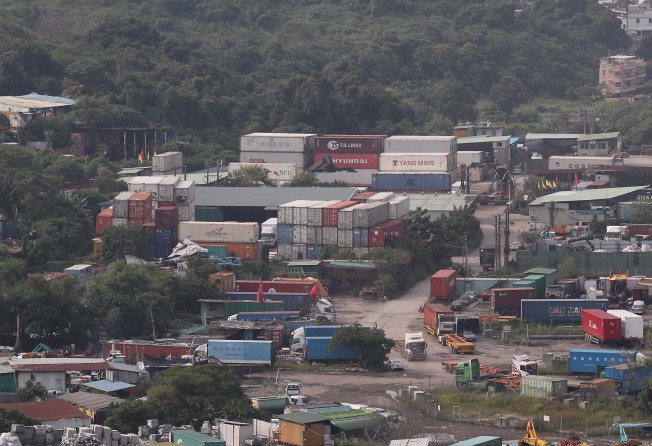Letters to the Editor, May 24, 2017

Brownfield sites should be first choice
The government is trying to be clever by putting the responsibility on the Housing Society to investigate the use of two sites on the edges of country parks for public housing.
The fiasco of Wang Chau should not be forgotten. Despite the urgency to solve the problem there, the government initially proposed sacrificing peoples’ homes in a green belt for far fewer public housing units so that a degraded brownfield site could remain.
Surely the urgent need for more public housing should have dictated that the brownfield site be developed first, and that the existing villages be integrated into the development by improving the infrastructure around them, thus allowing the people to keep their homes. A higher plot ratio could have been applied to the brownfield site development.
Also, the government has brought about the felling of many hundreds of trees by rezoning fully wooded green belts, instead of tackling degraded green belts. It now aims to shift the blame for potentially felling many more hundreds of trees. Does this government not recognise that trees play a very important role in the environment?
Is there no recognition of the fact that Hong Kong has been bound by the Convention on Biodiversity since 2011? Country parks and indeed these fully wooded green-belt areas are supposed to remain untouched under that convention.
A potential solution would be to use some MTR station or depot developments instead. Those yet to be developed are readily available and would provide a very good future customer base for the MTR.
It should not be too difficult to work out the arrangements: the MTR builds the necessary foundations, the government reimburses those costs and then builds the public housing above.
It would make a pleasant change to see such a worthwhile contribution to helping solve a critical problem instead of the developments providing luxury housing for the chosen few.
Allan Hay, Tai Po
Taxi drivers could provide better service
Many people these days choose to use car-hailing apps like Uber in Hong Kong, because of the behaviour of taxi drivers.
They are sick of cabbies’ bad attitude and frequent refusal to pick up passengers.
These drivers need a change of attitude if they want to get back the customers that they have lost to the car-hire apps.
Taxi firms must develop their own apps so people can get a taxi where and when they need it. The app can give clear instructions to the driver so he knows exactly where to go. Often, disputes arise due to confusion over the precise destination.
Cathy Chou Yuen-ying, Kwai Chung
Treatment for addicts works in Vancouver
I was disturbed to read Peter Guy’s article (“Gentrification may be the answer to Vancouver’s drugs crisis”, May 8).
Over the past several years, I’ve read a lot of drug policy research while making the documentary radio show, Cited, and I would recommend Guy reads some of it if he wants to write about drugs again.
In particular, I would refer him to two clinical trials: NAOMI and SALOME. They studied Crosstown Clinic, which already offers prescription heroin to a small number of Vancouverites.
Guy says this kind of intervention might draw new drug users to the city (researchers found it did not) and that heroin-assisted treatment is a drain on taxpayers’ money (researchers found it was a more cost-effective option).
I have visited patients at Crosstown and they told me the clinic gives them safety, stability and dignity. One patient told me about his first day at Crosstown. He realised he wouldn’t have to steal to pay for his fix, so he wandered down to the beach for the first time in years. Now he works full-time saving other drug users’ lives. Another patient was gradually weaned off opiates altogether. She is now reconnected with her family.
Some patients stopped prostituting themselves; some went to school. Doctors and nurses guarantee the dose, so no one has fatally overdosed.
Guy says, “Perhaps there is no economic solution to the pernicious problem of addiction other than more property development and gentrification.” The kind of displacement he calls for helped cause (not solve) mental health and addiction problems.
Does he think pushing people a few blocks east in the city, to die on the streets away from the gleaming towers, is any kind of “solution”? We are talking about human beings with families.
Sam Fenn, executive producer and host of Cited
Regular system updates can defeat hackers
The “WannaCry” ransomware attacks earlier this month affected individuals and institutions globally. Victims of the hacking included the National Health Service of Britain, schools and universities (“Is your PC up to date? Home computers exposed as global cyberattack threat builds”, May 14).
What happened will have raised the awareness of Hongkongers about internet security and the need to be alert.
Victims did not have the necessary firewalls. Sometimes this might have been out of ignorance and also a misplaced desire to save money, but in trying to make savings they incurred even bigger losses.
Also, that attitude makes no sense as it should not cost you anything to update the system patches in your computer. If they have not done so already, people should update these patches immediately so they have maximum protection against cyberattacks.
All companies, including small and medium-sized enterprises, should install good security systems in their computers.
They need to recognise that they could incur substantial losses if they fail to do this.
Maggie Wu Mei-yin, Kwai Chung